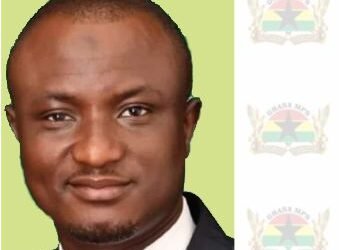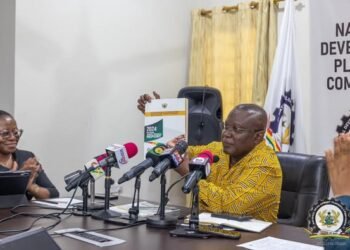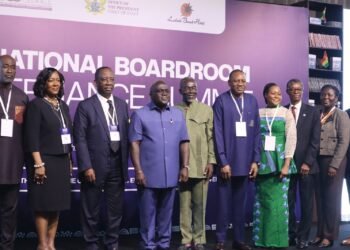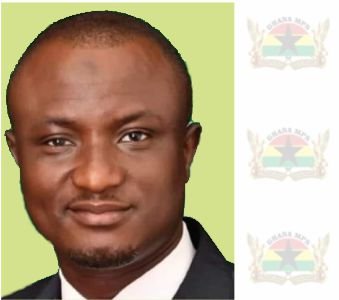Dr. John Kwakye, Economist and Head of Research at the Institute of Economic Affairs (IEA), has highlighted several contentious taxes that should be considered for removal in the 2025 Budget, except for the Betting Tax.
According to him, the “E-Levy, Covid Tax, Emissions Tax, and Growth and Sustainability Tax” should be scrapped.
However, he strongly argued that the Betting Tax should be maintained for both revenue generation and deterrence purposes.
Additionally, he recommends that the government aggressively pursue e-commerce taxation.
Dr. Kwakye emphasized the need for comprehensive fiscal discipline in the government’s ongoing negotiations with the International Monetary Fund (IMF).
“Tax management, expenditure management, debt management, inflation management, and exchange rate management should be priorities in the ongoing IMF-Government negotiations.”
Dr. John Kwakye
While advocating for certain tax removals, he stressed that the government must implement strategic measures to compensate for the lost revenue.

“Planned tax abolitions should be compensated by measures to plug tax loopholes, broaden the tax net, strengthen tax administration, and stem tax evasion. Also, natural resource receipts should be fully exploited”.
Dr. John Kwakye
Dr. Kwakye further highlighted the growing role of betting in Ghana’s economy, noting its significant revenue potential.
He warned that leaving betting untaxed would be an unwise fiscal decision.
“Betting will become an increasing part of the economy with a huge tax revenue potential. Leaving betting untaxed would, therefore, be fiscally ill-advised and, indeed, suicidal!”
Dr. John Kwakye
His position underscores the ongoing debate over balancing revenue generation and economic growth, particularly in a country where taxation remains a sensitive issue.
A Difficult Reality for Tax Abolitions
Meanwhile, Economist Dr. Priscilla Twumasi Baffour took a more cautious stance, recognizing the government’s commitment to eliminating certain taxes but cautioning that economic conditions might require a shift in approach.
She noted that given the current challenges, the finance minister should have no hesitation in acknowledging that some promised tax cuts may not be feasible.

She urged the government to capitalize on its existing goodwill and make pragmatic economic choices.
“I believe that it’s early days, and they still have the goodwill of the Ghanaians, so they can thrive on it and do what is practical because the risk to businesses and to Ghanaians as a whole is that if the trajectory that the economy is currently on switches and we enter into another phase of turbulence, it will be quite disastrous for everybody.
“It affects people in terms of standards of living, fixed income earners really struggle with high inflation and all of that. And so I do not think that it should be something that is impossible”.
Dr. Priscilla Twumasi Baffour
Dr. Priscilla Twumasi Baffour recognized that the government could face some political repercussions for not fully delivering on its tax-cut promises.
However, she emphasized that ensuring economic stability should take precedence over political considerations.
She noted that while there might be an initial political cost, the government currently enjoys significant goodwill and should carefully assess the fiscal impact before rushing to eliminate all pledged taxes.
If the economic conditions make it challenging to offset the revenue shortfall, she advised a more measured approach to policy implementation.
The Growth Versus Taxation Dilemma
Dr. Baffour further defended the rationale behind tax removals, arguing that taxation should not stifle production.
However, she acknowledged that achieving significant economic growth in Ghana’s current climate remains challenging.
“The whole idea of, for example, taking out a lot of taxes, nuisance taxes, as we heard some time ago, is the fact that you want to de-emphasize taxation and look at production. And so when the economy grows, tax revenue is a function of the growth of the economy,” she noted.
Dr. Priscilla Twumasi Baffour
However, she cautioned that growth does not happen overnight.“ It takes quite some time to be able to observe a given substantial level of growth,” she added.
With the 2025 Budget discussions already generating intense debate, the government faces the challenge of balancing economic realities with political expectations.
Whether the controversial taxes will be abolished or maintained remains to be seen, but one thing is certain—the conversation on taxation and economic strategy in Ghana is far from over.
READ ALSO: Modi Meets With US National Security Advisor





















